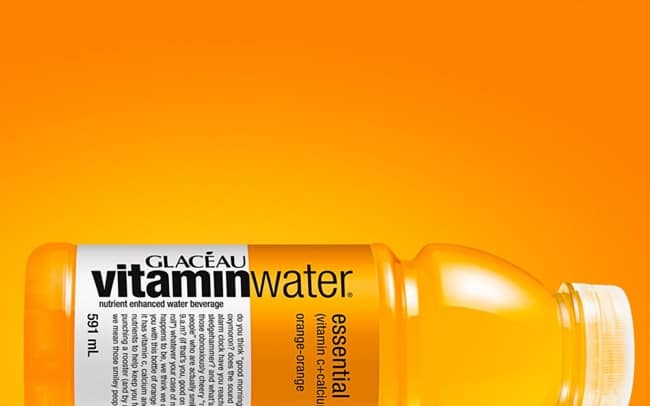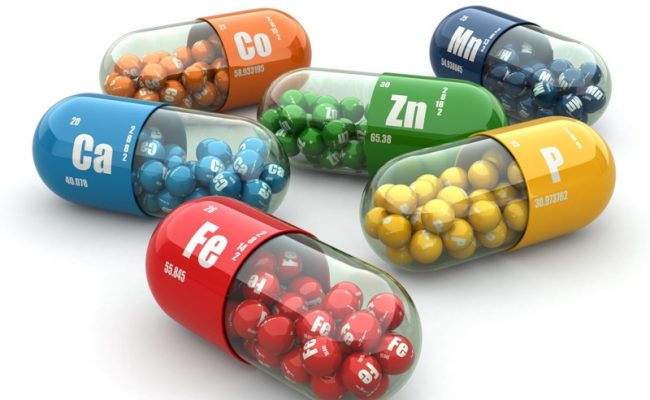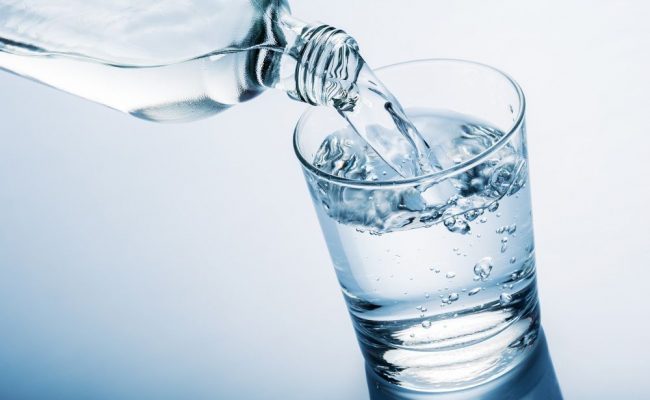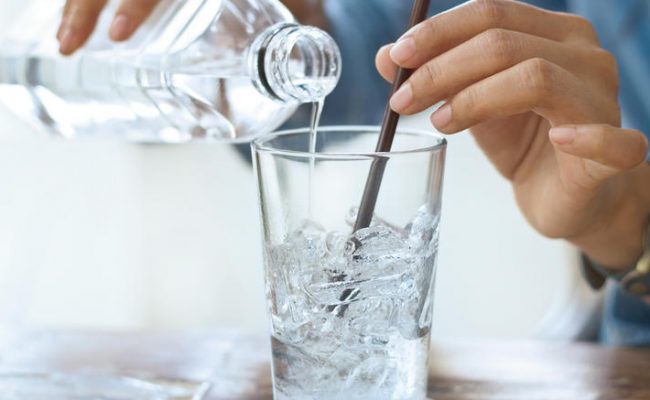
Vitamin fortified, flavored waters have become popular as a “healthy” beverage of choice for many. However, avoiding these products may actually be better than by choosing vitamin fortified water. Vitamin waters can be almost as high in sugar as sodas which negates almost all benefit from the addition of added vitamins.
Vitamin waters sometimes are marketed to appear that they can really have a positive effect in health. However, these claims should be read with caution.
One particular company, Vitaminwater (1) which is owned by Coca-Cola, was sued in 2009 by the Center for Science in the Public Interest (CSPI) for making deceptive health claims.
The company’s names of water flavors, such as defense, focus, essential, etc. are also seen as skeptical and misleading.
Do we need the added vitamins from vitamin water?
Vitamins are one of the essential nutrients needed by humans, meaning we need to eat them for survival because our body doesn’t make them. The nutrients we get through food and beverages are designed to provide the nutrients we need for energy, growth and protection against sickness.
So why would we need a supplement of vitamins and minerals?
Typical Western style diet with little nutrient packed foods and high in processed foods creates a set up for not getting a lot of nutrients through the diet. This transitions to popular opinion for the need of vitamin/mineral supplements and fortified products like vitamin water.
Contrary to popular belief, there is actually not a consensus among the scientific community if vitamin supplements are even beneficial.
The way we absorb nutrients from real foods is different than from supplements like pills or vitamin spiked water.
Some research even suggests getting some vitamins from supplements may do more harm than good.
Why they might be worth avoiding
According to a 2012 study (2), there is no evidence to support that antioxidant supplements, like what can be added to some vitamin waters, can help with disease prevention.
A 2007 study (3) even found that there could even be an INCREASED risk of mortality from supplementing with the antioxidants vitamin A, beta carotene (vitamin A derivative) and vitamin E.
Note that getting these nutrients from real foods has the opposite association: they are associated with decreasing risk for certain diseases and generally having a positive effect on health.
As with other vitamins/mineral supplements for people who are considered healthy, getting nutrients from supplement products does not have the same effect as getting these nutrients from food.
So are vitamin waters considered healthy?
According to an article (4) in Bloomberg Business, Coca-Cola’s legal team suggested during their 2009 law suit that no consumer would reasonably consider Vitamin water a healthy beverage.
Even though some vitamin waters claim to have health benefits, these claims are unsubstantiated, and getting synthetic vitamins from supplements does not appear to have the same benefits as from food.
Sugar content
One reason why vitamin waters may not be considered healthy is because they are full of sugar. In fact, Vitaminwater can provide 32-34 grams of sugar per 20-ounce size. Compared to an 8 ounce glass of soda pop that provides about 44 grams of sugar, vitamin waters are not that far behind in sugar content.
Getting extra sugar is associated with increasing risk for obesity, type 2 diabetes and even cardiovascular disease.
In fact, cutting out sugary beverages is one of the top recommendations for weight loss according to Johns Hopkins Bloomberg School of Public Health (5).
According to these researchers, cutting sugar calories from liquids appears to have a stronger effect on weight loss compared to cutting sugar intake from solid food.
What about the sugar free flavors?
So if you cut out the sugar from vitamin waters, does this make them healthier?
There is much debate about the safety of sugar alternatives and their effect on the body. The question is always, whether from sugar or an alternate sweetener, is how much are you having?
Getting a lot of artificial sweeteners can upregulate your desire for sweet flavor and may have a negative impact on your gut bacteria.
Make your own Vitamin Water
As an alternate for sweetened vitamin waters, make your own. Start with pure water as a base and add real fruit pieces, mint, cucumber or other produce to add sweetness.
If you need a little more, add just a touch of real honey or maple syrup. This way you are still getting some vitamins and minerals from natural sources and are bumping up your water intake.
Conclusion
Vitamin fortified waters can have a lot of unsubstantiated hype related with them. Health claims associated with drinking vitamin water has recently been challenged by law suits, and Coca-Cola itself, which owns Vitaminwater, supposedly claimed that they are not healthy beverages.
They are high in sugar almost as much as what is in soda pop. Sugar free alternatives may not be much better even though they don’t have the sugar calories.
As a healthier alternative, drink real water with real nutrients added.
You can tailor the sweetness added by using a combination of different fruits, vegetables, honey/maple syrup or herbs to add some flavor and nutrients.










